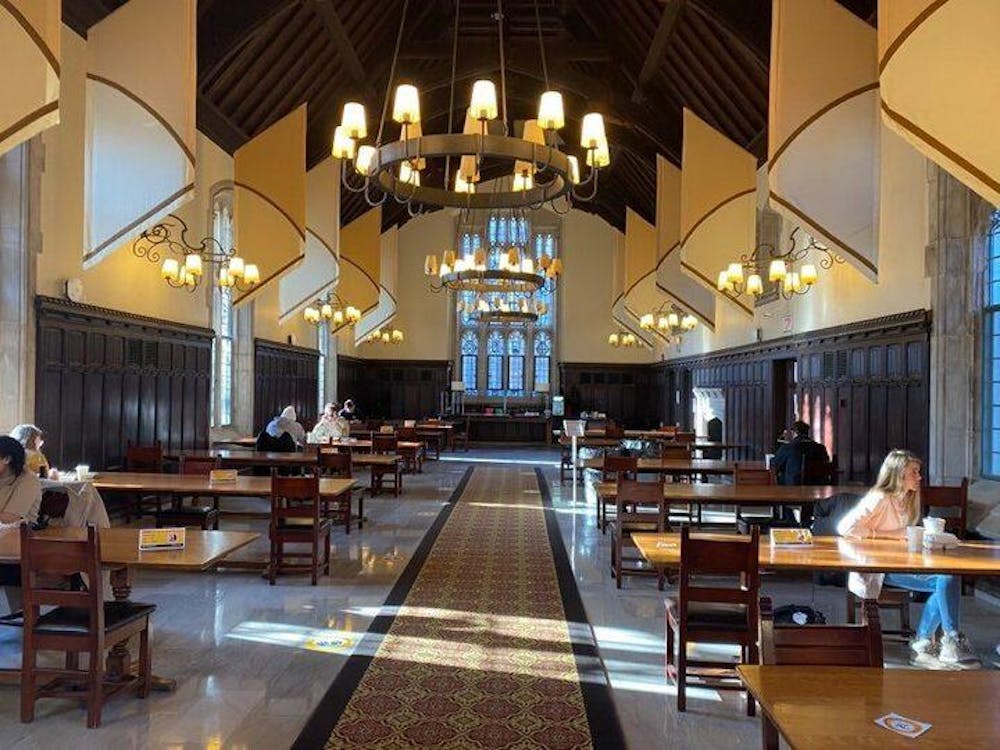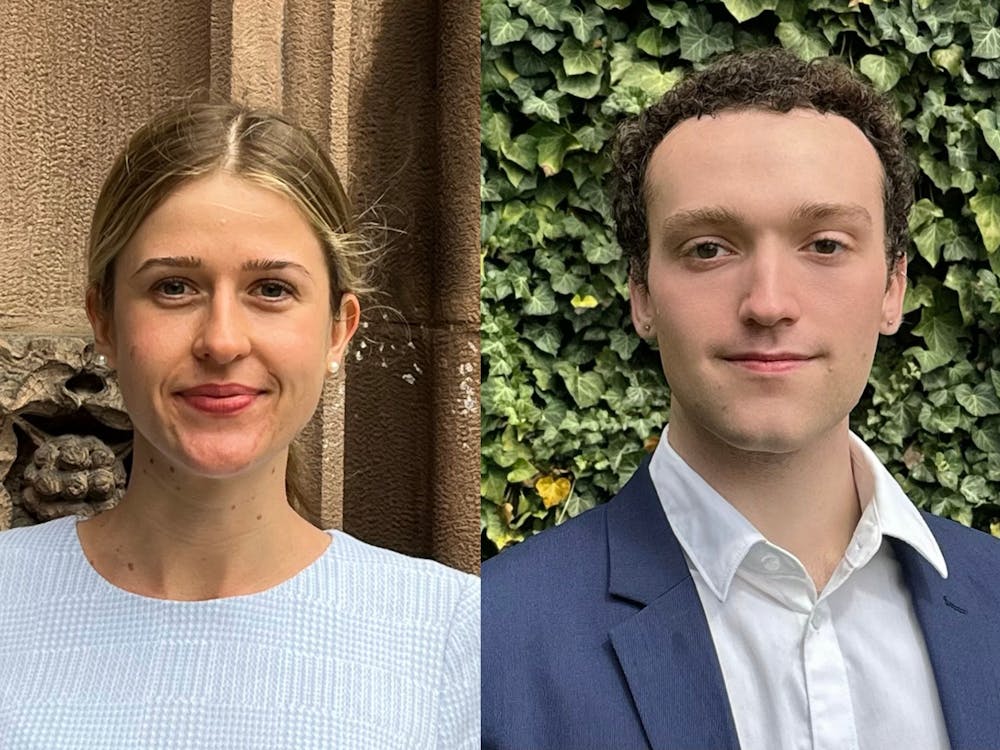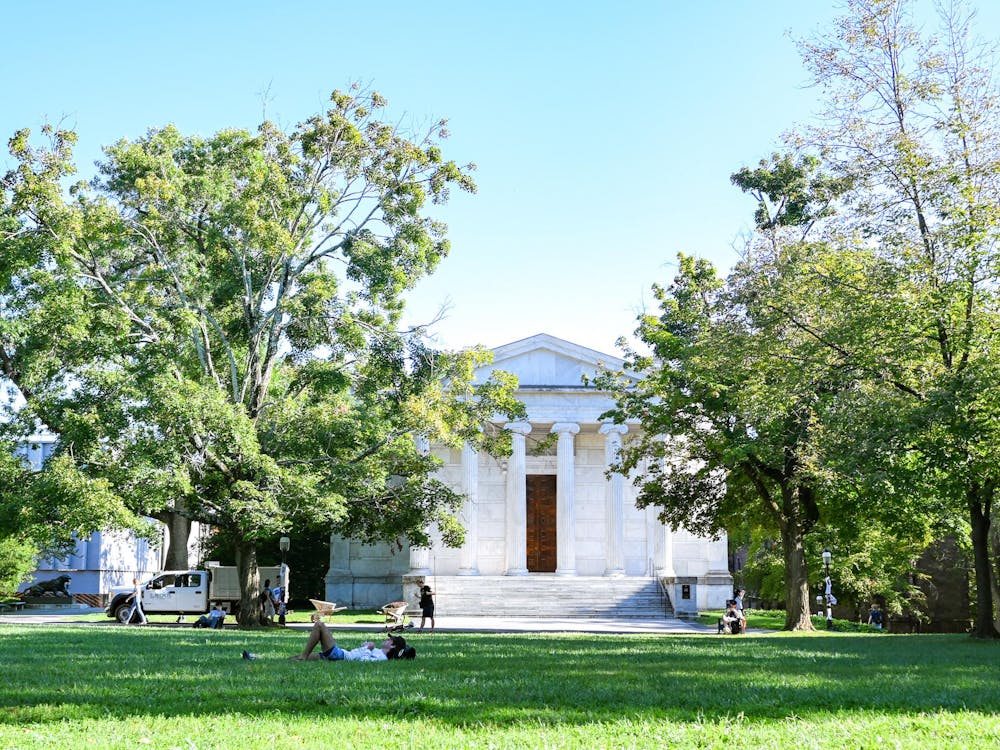Despite the entrance of the first non-selective class of undergraduate Wilson School majors this year, similar interdisciplinary majors at Yale University are not currently considering similar alterations to their application processes.
Like the formerly selective Wilson School’s old application process, the Ethics, Politics and Economics major and the Jackson Institute for Global Affairs major require prospective students to apply during their sophomore year. All three programs saw acceptance rates of around 50 percent or lower in the past few years, and neither of the two Yale programs has prerequisites, directors for both Yale programs said.
The Jackson Institute selected its first class of students in spring 2011, accepting 50 sophomores from a pool of over 100 students, Jackson Institute Director James Levinsohn GS ’88 said. Levinsohn said the program had chosen to launch as a selective major to keep the early classes small and supported by adequate resources.
As a Wilson School graduate himself, Levinsohn noted that the Jackson Institute is Yale’s equivalent of the Wilson School. “When I was developing the undergraduate major in global affairs, I definitely had that in mind,” he explained.
Unlike the Wilson School, which includes both domestic and international tracks, the Jackson Institute focuses on international affairs.
Meanwhile, Yale politics professor and EP&E director Steven Wilkinson noted that EP&E, unlike the Wilson School, does not have its own faculty but instead originated from a collaborative effort among three departments. Compared to global affairs, EP&E is less policy-oriented, he said.
Neither Yale program intends to end selectivity anytime soon, both program directors said. Levinsohn and Wilkinson cited a lack of resources as a constraint on open enrollment.
“I think we would probably like to admit more people, but we have a constraint, a resource constraint, because we are a seminar-based major, and we’re able to fund and staff only a limited number of course seminars,” Wilkinson explained.
While Yale has a number of selective majors, including architecture, the Wilson School was the only selective major at Princeton at the time its application process ended. The decision followed a year-long committee review that ended with new prerequisite courses and curricular reforms alongside the end of selective admissions for the Class of 2015.
When the decision was made to end selective admission in April 2011, the Wilson School’s review committee citedequal opportunity for all students to major in public and international affairs as a cause for widespread faculty support. In student surveys, juniors and seniors who were not admitted to the Wilson School indicatedgreater dissatisfaction with their experience at the University.
“It is a little bit sad that people who could potentially do very well in the major might ultimately not get in,” O’Connell said. “For some people — for many, actually — it is a cause of uncertainty and even of frustration at times before you hear back, in that you ultimately don’t know how things will turn out.”

The first year of non-selectivity for the Wilson School has resulted in a cohort of over 160 students for the Class of 2015. Undergraduate faculty chair Christina Davis said in a September interview that policy classes and research seminars would maintain a 10:1 student-to-faculty ratio.
Levinsohn said the Jackson Institute is remaining selective because of fears that a non-selective program would accept a similarly large class size, which it would not be able to accommodate in its senior task forces.
“At the heart of it, we don’t have the size of the faculty needed to accommodate as many people as apply,” Levinsohn said. “Those [task forces] are very small, and I don’t think it’s scalable.”
All of the EP&E seminars are capped at 18 students, Wilkinson said.
“We simply couldn’t grow without more resources, which is not forthcoming in the current budgetary environment,” Wilkinson said. “I think each year we have to not admit some students that we would like to admit.”
Nonetheless, Levinsohn said he was sure the program would review the selectivity process at some point down the road.
Dean of the Wilson School Cecilia Rouse said the Wilson School had been planning since last semester to ensure the proper resources were available for the first class under open admissions.
“One of the great things about Princeton is that we have the luxury of being a university that is really well-run and rides the financial crisis beautifully,” Rouse said.
She also noted that the size of the undergraduate class hadn’t changed, so the University-wide resources that were available to students before were still there. She said she could not comment on the present or future of Yale’s programs on the basis of the Wilson School’s experiences.
“Every university has to make the decisions that are best for it and for its programs,” Rouse said.








